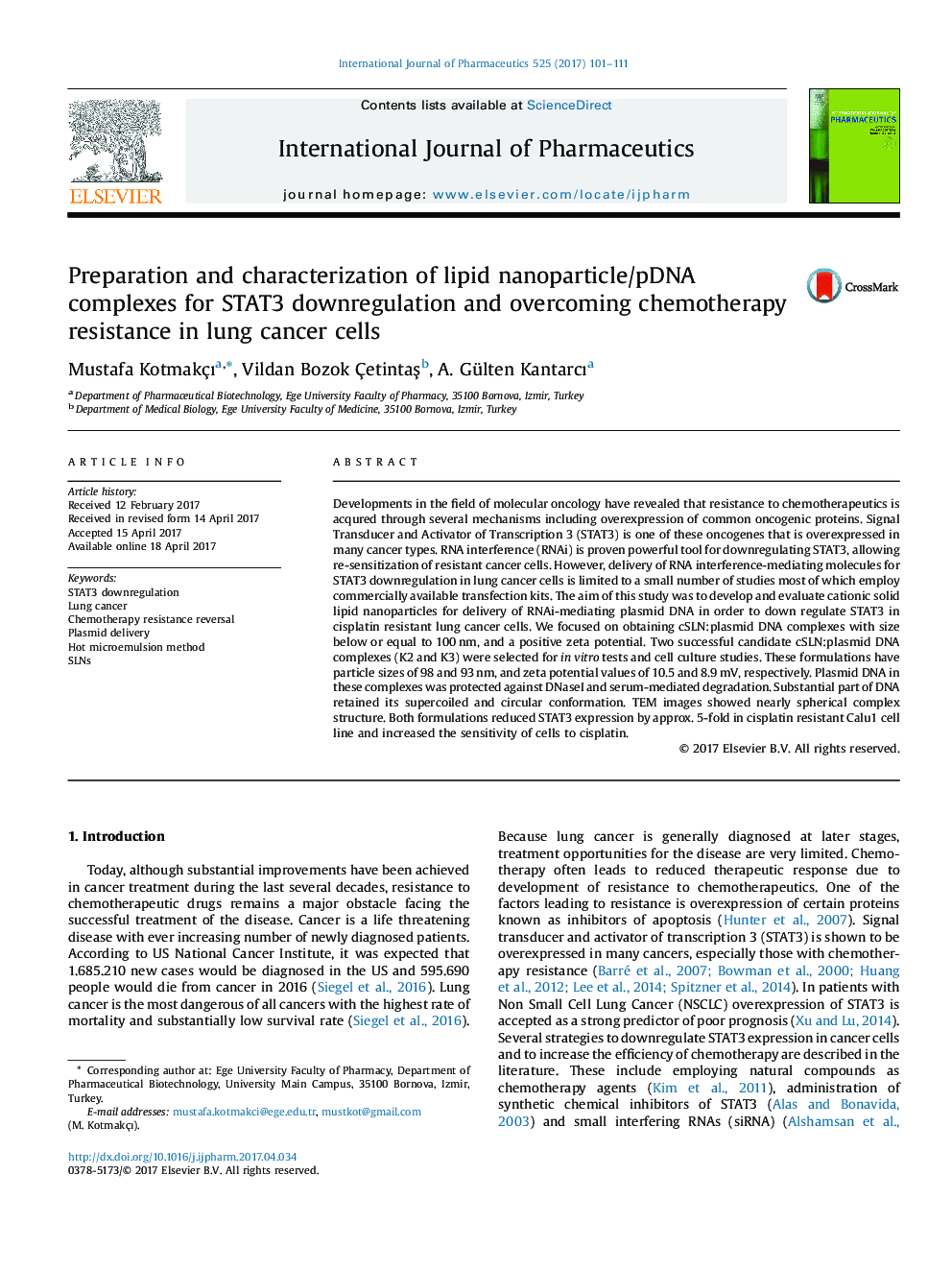| Article ID | Journal | Published Year | Pages | File Type |
|---|---|---|---|---|
| 5550451 | International Journal of Pharmaceutics | 2017 | 11 Pages |
Developments in the field of molecular oncology have revealed that resistance to chemotherapeutics is acqured through several mechanisms including overexpression of common oncogenic proteins. Signal Transducer and Activator of Transcription 3 (STAT3) is one of these oncogenes that is overexpressed in many cancer types. RNA interference (RNAi) is proven powerful tool for downregulating STAT3, allowing re-sensitization of resistant cancer cells. However, delivery of RNA interference-mediating molecules for STAT3 downregulation in lung cancer cells is limited to a small number of studies most of which employ commercially available transfection kits. The aim of this study was to develop and evaluate cationic solid lipid nanoparticles for delivery of RNAi-mediating plasmid DNA in order to down regulate STAT3 in cisplatin resistant lung cancer cells. We focused on obtaining cSLN:plasmid DNA complexes with size below or equal to 100Â nm, and a positive zeta potential. Two successful candidate cSLN:plasmid DNA complexes (K2 and K3) were selected for in vitro tests and cell culture studies. These formulations have particle sizes of 98 and 93Â nm, and zeta potential values of 10.5 and 8.9Â mV, respectively. Plasmid DNA in these complexes was protected against DNaseI and serum-mediated degradation. Substantial part of DNA retained its supercoiled and circular conformation. TEM images showed nearly spherical complex structure. Both formulations reduced STAT3 expression by approx. 5-fold in cisplatin resistant Calu1 cell line and increased the sensitivity of cells to cisplatin.
Graphical abstractDownload high-res image (93KB)Download full-size image
